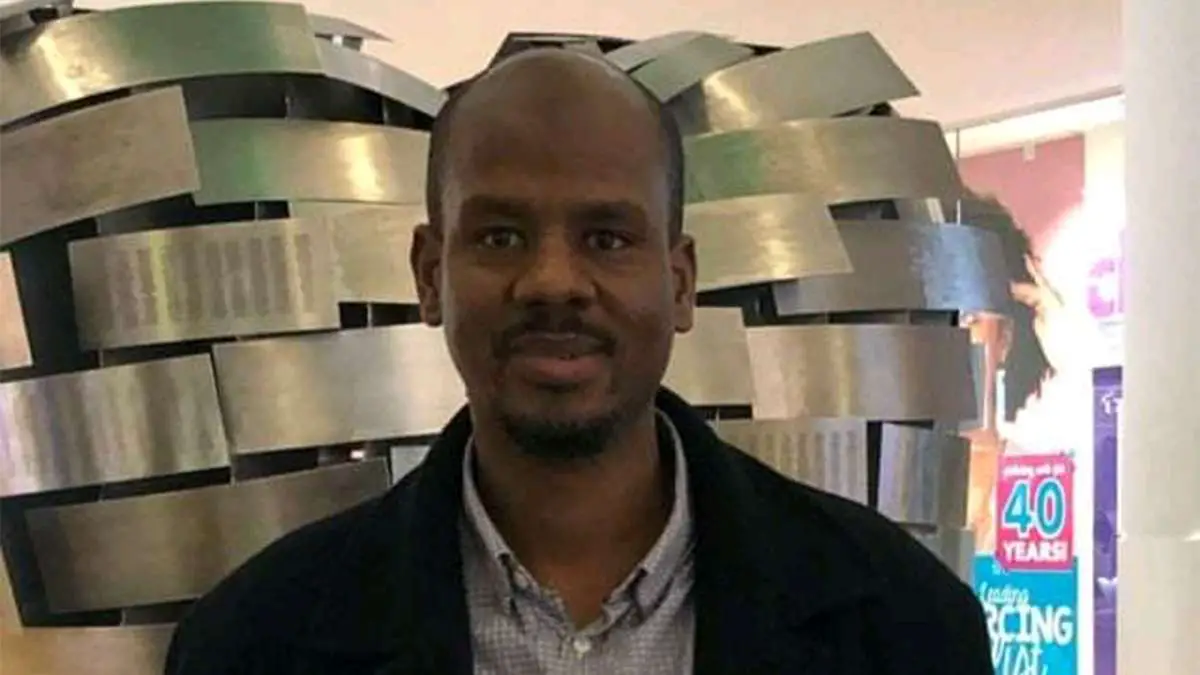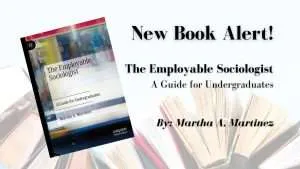Reigniting the Relevance of Sociology in Nigeria: Dr. Muazu Usman Shehu
Dr. Muazu Usman Shehu from Nigeria believes in the importance of sociology in Nigeria. Dr. Shehu received his BSc and MSc from the Ahmadu Bello University and Bayero University, Nigeria, respectively. He obtained his PhD in sociological studies from the University of Sheffield, United Kingdom. Although originally trained in sociology, his research interests are interdisciplinary and broadly include religion and ecology, religion in society, science and technology in society, and forced migration.
As a PhD researcher, he was an active member of the Science and Technology in Society research group at the University of Sheffield. He has published his research in several academic journals and academic blogs and has also given talks in leading academic conferences across the world.
In this interview, our correspondent in Nigeria, Adamu Usman Garko talks with Dr. Shehu about the relevance of sociology in Nigeria, why that relevance may be declining, and how to reignite an interest in sociology and social sciences more broadly across the country.
Applied Worldwide: For over the decades you have been teaching and conducting research on various aspects of sociology. Tell us about yourself and your academic journey, particularly hinging on your exploits in the sociological inquires.
Muazu Shehu: As you have mentioned, my name is Muazu Usman Shehu. I was born in the city of Gombe, presently the capital of Gombe State of Nigeria. My educational journey started in a Quranic school named Usman Memorial Qur’an School in Gombe in 1978. I learned to read and write in Arabic, specifically Qur’anic verses before I was enrolled into Central Primary School, Gombe in 1980. After primary education, I attended Gandu Junior Secondary School Gombe (1986-1989) and Government Secondary School, Mallam-Sidi (1989-1992).
As with most of my generation, I secured admission at the then Bauchi College of Arts and Science (BACAS) Bauchi to undergo a remedial programme, preparatory to admission into the university. From Bauchi, I proceeded to Ahmadu Bello University, Zaria where I obtained a bachelor’s degree in Sociology in 2000. I got an appointment as a graduate assistant in sociology when Gombe State University was founded in 2005 and immediately proceeded to Bayero University in Kano for a master’s degree in Sociology.
Federal Government Scholarship in the UK
In 2011, I got a Federal Government Scholarship via TetFund to study PhD at the University of Sheffield in the United Kingdom. I obtained my PhD from the University of Sheffield in 2015 with specialisation in Environmental Sociology, Sociology of Religion and Mixed Methodology.
For the past 16 years, I have taught undergraduate and postgraduate modules in a wide range of areas in sociology. Although originally trained in sociology, my research interests are multidisciplinary and broadly include environmental sociology, religion in society, sociology of science and technology (part of what is now called STS) and forced migration studies. Between 2019 and 2020, I was a Research Fellow at the Rachel Carson Centre for Environment and Society at the Ludwig Maximillian University of Munich in Germany.
My modest academic accomplishments include winning grants and fellowships from highly prestigious research funders such as the Social Science Research Council, the Institute of International Education and the Carnegie Corporation. In addition, I have published my research in a number of international and local peer-reviewed journals and have given talks in leading academic conferences and campuses across the world. This my brief academic journey.
Applied Worldwide: Great! So how did you encounter sociology?
Muazu Shehu: I started reading my brother’s introductory sociology textbooks while in junior secondary school in the 1980s. I became fascinated by the subject quite early in life. I read the writings of Marx, Ibn Khaldun, Weber and Durkheim, as well as the radical ideas of Zaria lecturers like Wilmot, Bala Usman, Okello Ochuli, Ebow Mensah etc. while a teenager. Eventually I got admission to read sociology at the same university and department my brother graduated from a few years back.
Applied Worldwide: What fascinated you in the field of sociology?
Muazu Shehu: I think there are two major reasons. Firstly, I was fascinated by the radical ideas of the founding fathers of the discipline. Secondly, this understanding, early in life, that education is not just about knowing things but also about getting the capacity to take interventionist actions in order to change the society for the better also got me attracted to sociological studies.
Sociology in Nigeria: State of the discipline
Applied Worldwide: Sociology as a field of studies is undervalued in Nigeria. Societal Interest in the field is fast diminishing. What do you think is contributing to this steady decline? What is the importance of sociology in Nigeria?
Muazu Shehu: Before answering the question, I would like to make it clear that in my opinion, all social scientific disciplines are experiencing a steady decline in Nigeria. The reasons for the decline of social sciences and humanities in Nigeria is a topic for another day.
Regarding the question you asked about the declining relevance of sociology as an academic and intellectual activity in Nigeria, I think sociology as a discipline overlaps and competes with a number of other disciplines such as economics, political science, history, development studies, social policy, public administration, psychology etc, for a number of reasons.
We compete with all these disciplines for students, for funding and for relevance in national and global socioeconomic and political discourse. Ideally, the fact that our discipline is the only discipline that overlaps with virtually all social scientific and humanistic disciplines should be an advantage for us. Unfortunately, we have not been able to take advantage of our being the most general and wide-ranging academic discipline that has the most holistic view of the society.
That we are competing with disciplines such as economics, public administration and even accounting in a world where students’ choice of course of study has become increasingly vocational means that sociology needs to demonstrate strong labour market potentials to remain a discipline of choice for students.
Importance of Sociology in Nigeria
Unfortunately, we have failed to do that and our negligence to demonstrate strong labour market advantage is tied to the second reason why I believe sociology is not maintaining its relevance in Nigeria. This second reason is the diminishing social status of sociology, due partly to the discipline’s disconnect with and even disdain for the political and business elite, owing to its left-wing socialist leaning. Another major reason, as I always tell my students, is that sociology, unlike many other disciplines emerged to help better understand the rapid transformations of the twentieth century.
That means, the main task of sociology is to explain social change. Many will agree with me that Nigerian sociology, if there is such a thing, has failed to do its job of helping the society make sense of the decisive changes we have been witnessing. Instead, we have relegated ourselves to teaching and researching such things as family, third world decolonisation, rural sociology etc.
We are showing little or no interest to things that matter: the impacts of technology (eg smartphones, social media etc) on the society, the effects of and societal response to climatic and environmental changes, the changing patterns of globalisation etc. The reasons are many. But these are some of them.
Applied Worldwide: Applied Worldwide was founded by Luke and Dr. Stephanie Wilson in the United States of America as part of their solution-driven efforts to use social media to bring sociology to the public with a designed strategy to bring knowledge of sociology in the hands of those who can create social change. In order to encourage students cultivate an interest in the field, they have also massively been engaged in essay writing competitions for students across the world. Do you think it is possible for Nigerian government to borrow a leaf from their ideas?
Muazu Shehu: This is a laudable initiative. I think more than ever, the accelerating pace at which our world is changing have serious implications for humanity and we need sociology and its unique analytical tools to make sense of this “acceleration of life” in this digital era. Unsurprisingly, Nigeria is one of the countries of the future – one of world’s most populous nations, with growing young and urban population. Thus we cannot afford to ignore this new effort to reignite the relevance of sociology in the country.
Applied Worldwide: What is your advice to young or would-be sociologists on the importance of sociology in Nigeria?
Muazu Shehu: My advice to young sociologists and emerging scholars in the discipline is that there are huge potentials in sociology in this rapidly changing world. Pay attention to what is going on around you and use your sociological imagination to understand what is happening. Engage with the public and use the insights to change the world for the better. That is our role.







